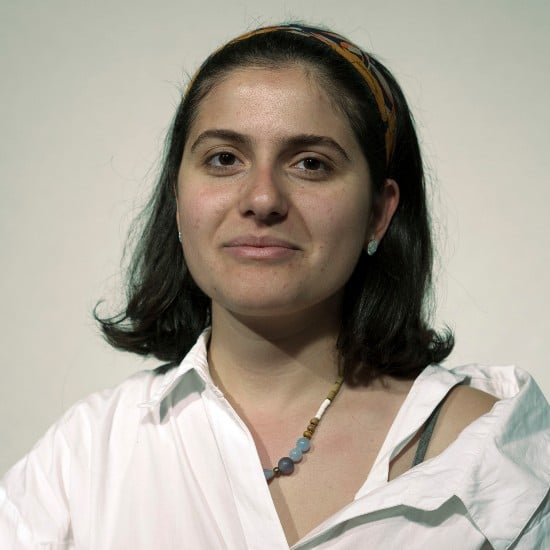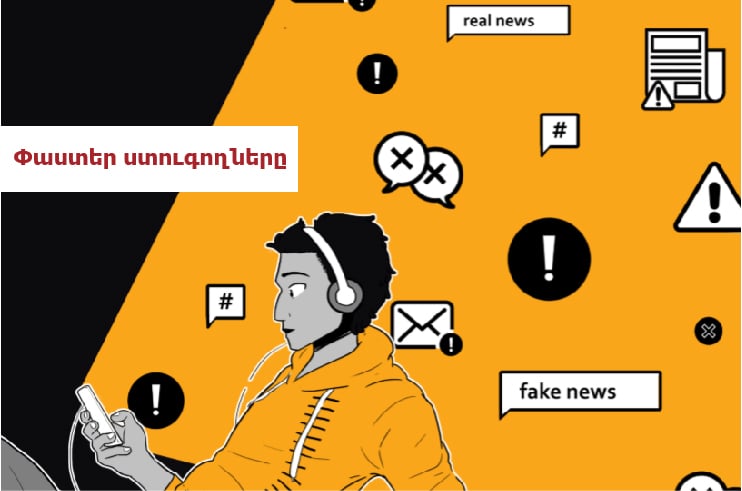April 2 is the International Fact-Checking Day.
It follows the April Fool’s Day, once again reminding of the importance of facts.
Poynter Institute International Fact-Checking Network has been coordinating a number of fact-checking events. Factcheckingday.com has been specifically launched for that day. Here, the audience can find fact-checking educational materials, as well as try interactive tests.
This year, in order to fight the COVID-19 Infodemic, a database with search options has been created, containing all of the checked falsehoods and fake info from more than 45 countries.
#CoronaVirusFacts hashtag is used for already-checked materials.
As it is stated in the website, fact–checking shouldn’t be something only professional fact-checkers do: an accurate information ecosystem requires everyone to do their part.
To celebrate the day, media.am talked with the representatives of Armenian fact-checking platforms, as well as some journalists and editors that place great importance upon fact-checking.
They shared some interesting examples of their fact-checking activities.
Hovhannes Nazaretyan, fip.am
I heard about fact-checking 4 or 5 years ago but my first experience was in October, 2018.
Like many other people, I also consider fact-checking to be an instrument of controlling public figures, especially – politicians.
Not many people have enough time, resources and knowledge to check all the statements of politicians, as well as various publications in the press. That’s why the existence of fact-checking reporters is very important.
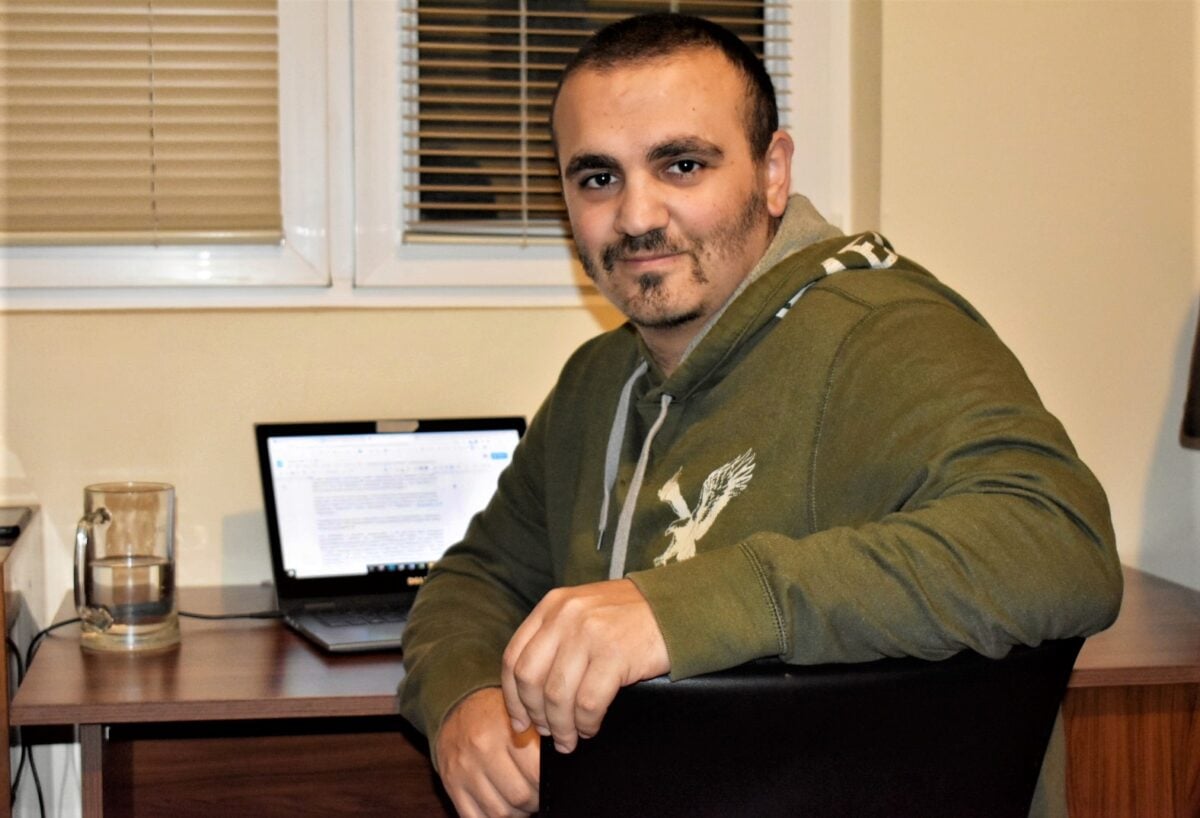
I wrote this story in February, and I think it’s an important one, although I checked the claim of former Prime Minister Hrant Bagratyan, and not someone from the current authorities. His claims are just irresponsible and could mislead the public.
Ophelia Simonyan, infocheck.am
Fact-checking was absolutely necessary for me because I had deep mistrust in all the media and the information that I received.
It was an issue of personal interest and ambitions, as well as a wish to inform people of the truth that I knew. Everything started from fip.am.
A couple of years ago, after a trial period, I was offered to run a project here, which was an essential experience for me.
After that, going all the way and achieving the truth became a vital necessity for me, and I realized that this type of journalism is incomparably more fascinating, especially if you are a distrustful person and are not interested in press conferences, just like me.
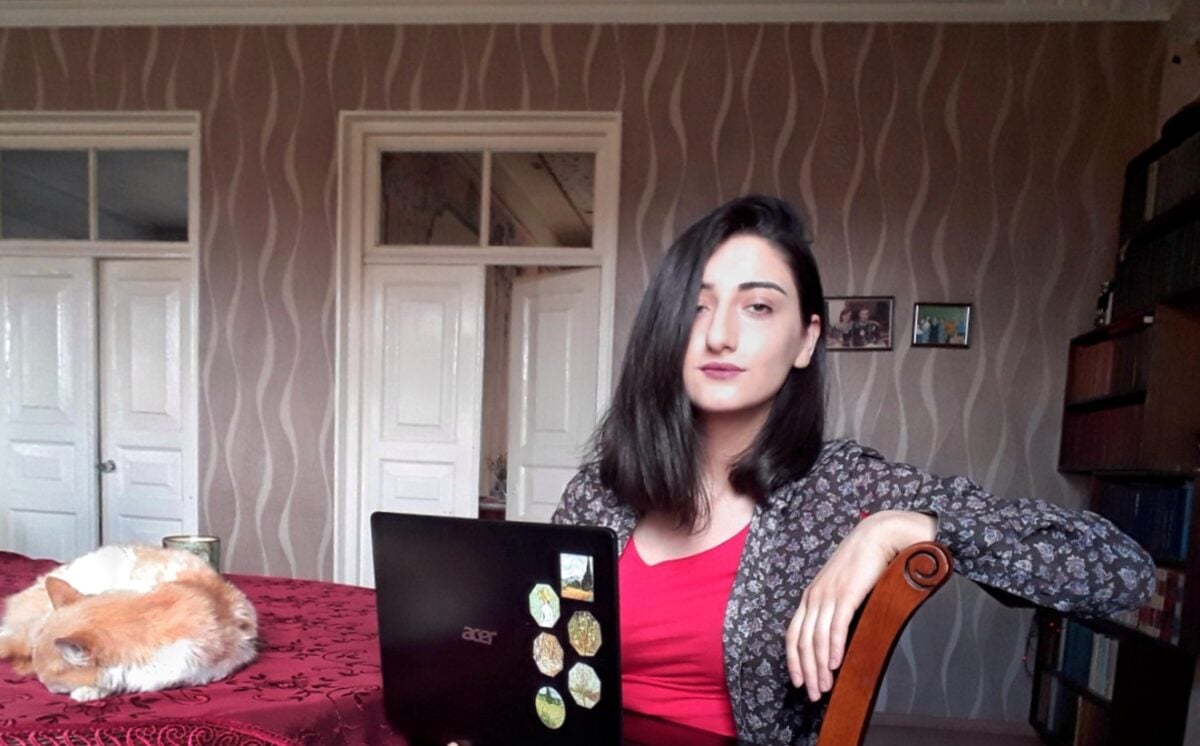
It’s about the investigation called Vahe Enfiajyan and the Army of fake Facebook Users from the Prosperous Armenia Party. Fake users were very active during the 2018 Parliamentary election campaign – they were spreading fake info and imitating the support of voters.
Their existence was not a big secret for many people but we had to collect evidence.
To find proofs, I got a job at a PA office. For about 10 days I was gathering facts about fake info that were later published.
Vahe Sarukhanyan, Hetq.am
In Hetq, fact-checking has been the editors’ responsibility. However, recently their workload was doubled because we started publishing more investigative stories.
Besides, we used to have a special fact-checking person that does not work at Hetq anymore.
That’s why, earlier this year, the editor-in-chief suggested I check the facts in investigative stories, alongside with my main job (I am also a reporter.) I accepted the offer.
Hetq is a member of OCCRP network. I have published my investigations at OOCRP and have learned “the hard way” what it means to pass through the “microscope” of fact-checking, presenting documents or other evidence related to almost every fact published in the story.

Photo by Deeptree
I would like to mention a story of mine published in 2014. I had information that the Sports and Concerts Complex had been up for auction at a price based on the assessment of persons related to Mihran Poghosyan, the former head of Judicial Acts Compulsory Enforcement Agency.
I managed to find substantiated facts proven by the signature in the documents.
Karine Ghazaryan, media.am
I think that journalism is about providing accurate, trustworthy information of public significance.
A journalist should find out the truth and write about it, and not just repeat the words of interviewees or sources. Otherwise, you just mechanically convey the information.
Besides, fact-checking is often a very interesting activity – it’s like putting the missing puzzle pieces together.
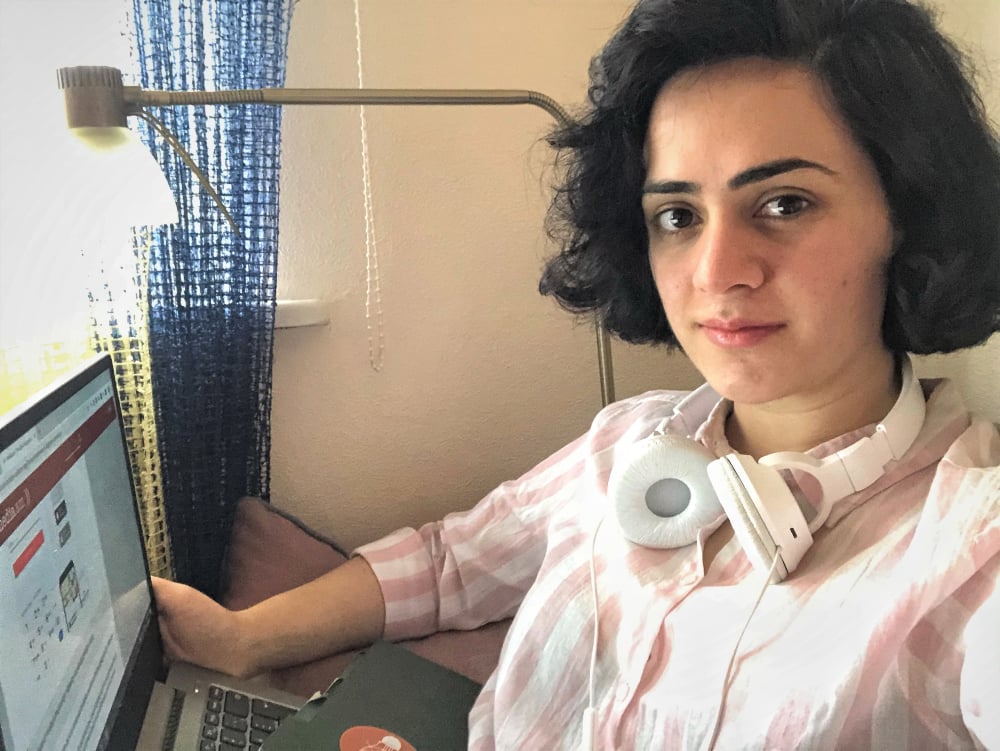
One of the most interesting pieces of information that I recently checked was the claim according to which Hayk Marutyan infringed the law by not ceasing to be the director of a company after becoming a mayor. I was really surprised to find out how a fake info could turn into an article circulating in the media.
Ani Grigoryan, an editor-in-chief at fip.am
Fake and manipulative statements and news are a real threat for democratic values. Our job as fact-checkers is to disclose the misleading statements and claims.
Fact-checking is a part of investigative journalism, and it has always been a favorite of mine.
That’s why I made a decision to change my specialty after working for seven years as a reporter and focus on fact-checking. After all, there is a lack of fact-checking experts in Armenia.
Surely, fact-checkers have no time to feel bored.
Both the representatives of the authorities and the opposition regularly use completely or partially false or manipulative facts in their statements.
And we try to disclose that misinformation through our daily hard work.

Photo by Sargis Kharazyan
When the Artsakh president and the Armenian prime minister met in fall 2019, only the flag of Armenia was displayed during the meeting, which sparked serious discussions.
The representatives of the Republican Party also criticized the fact, trying to put forward new conspiracy theories.
I studied the photos of the meetings with former presidents, and it became quite clear that it was not for the first time.
Samvel Martirosyan, media expert
Today, verification of information has become an essential thing. We see that fake news can take lives, as it happened in Iran where hundreds of people died wrongly believing that drinking methyl alcohol would kill the virus.
Besides, fake news cause anxiety and panic.
Taking advantage of people’s severe emotional distress, criminals often make up various frauds, disseminate them and extort money from people.

Photo by Progress of Gyumri NGO
In the last few days I’ve been mainly focusing on cybercriminals that have become extremely active amidst the Coronavirus outbreak.
Also, I’ve been trying to disclose the actions of the Azerbaijani special services when they spread panic-provoking false info about Coronavirus cases in Armenia and Artsakh through “hacked” Armenian accounts.
Siranuysh Gevorgyan, the Yerevan Bureau Director for RFE/RL’s Armenian Service
It is extremely important for us not to lose the trust of our audience and provide only accurate information. We don’t have fact-checkers working for us right now.
Primarily, fact-checking is the responsibility of the reporters that are required to double-check the information with at least two sources before posting it.
This is the main rule that allows us to avoid spreading false information. Preventing misinformation is also the editor’s responsibility. An editor is obliged to be very vigilant and question everything.
I, personally, question everything, and always remain vigilant
Even in very simple cases I ask a reporter to double-check, to call again and get a confirmation.

Photo by Hrayr Tamrazyan
I have been an editor-in-chief for 4 years, and I can recall only isolated cases of misinformation spread.
I remember only one case at this moment when an Adam Schiff mirror site was launched (just by switching one of the letters), spreading an info that Schiff had promised to help with the adoption of a resolution recognizing the Armenian Genocide in Congress.
We quickly revealed that the website was a fake one, removed the story, apologized and informed that the content was not true.
Also, we immediately contacted Adam Schiff’s office that provided us with a comment on this false info. After that, we published their response.
Arshaluys Barseghyan
